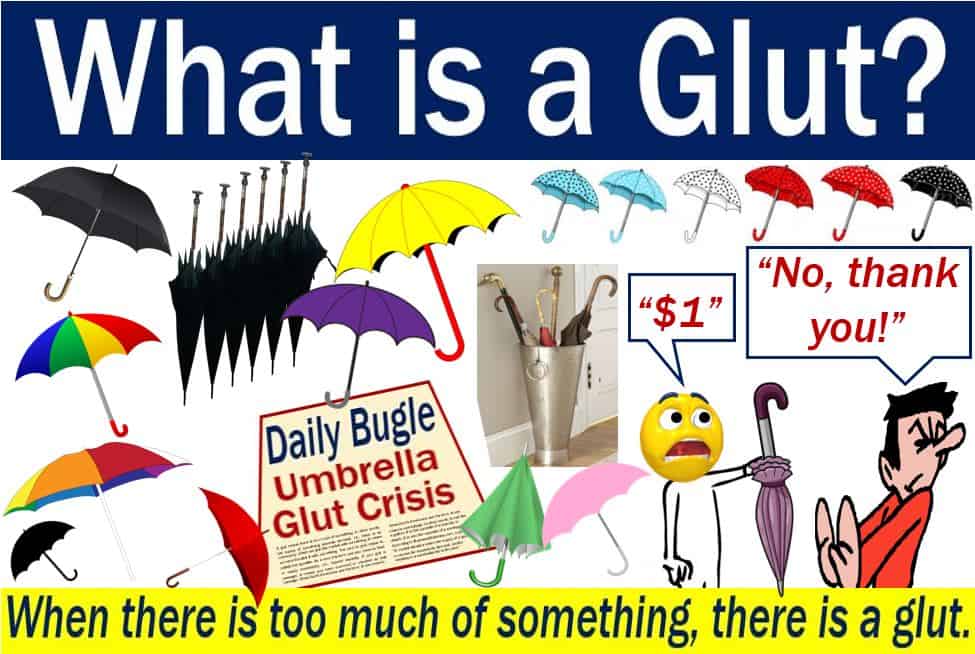A glut means there is too much of something. In other words, the supply of something exceeds demand, i.e., there is an oversupply. When we glut the market with something, it means we have flooded it with something. The verb to glut can mean to satisfy the appetite.
As a verb, the term may also mean to feed or supply excessively, i.e., beyond capacity. If you glut a passage, it means you have crammed or chocked up that passage.
When North Americans use the term, it can mean to overindulge. In other words, to eat like a glutton.
It is the opposite of scarcity or dearth. It is also the opposite of shortage.
According to BusinessDictionary.com, a glut is:
“A market situation where the supply of a good or service far exceeds its demand, usually resulting in a substantial fall in its price.”
Glut in economics
In economics, a glut is an oversupply, overproduction, or excess of supply over demand. The term refers to either products or services.
When there is an overproduction or oversupply of something, its price usually declines. Additionally, an oversupply of something can lead to unsold goods and even unemployment.
Overproduction sometimes follows overinvestment, i.e., when a company invested too much. The overinvestment creates excess productive capacity, which as mentioned before, leads to either lower prices or unsold goods.

Supply and demand
In economics, demand represents how much of a good or service consumers want. Supply, on the other hand, represents how much of a product or service a market can offer.
Supply and demand are fundamental concepts in economics. They drive the price of goods in a market economy. They also determine wage levels.
Consequences of gluts
Sometimes, gluts can trigger a vicious circle of declining prices, lower profits, and job losses.
The overproduction of commodities, for example, forces companies to reduce production. They reduce production because they need to clear inventories.
If a company reduces production, it may have to lay off workers, i.e., there is a reduction in employment. If employment falls, consumption subsequently declines.
A reduction in consumption is the same as falling demand. Falling demand causes further gluts and fuels the vicious circle.
Video – The US oil glut
In this Bloomberg video, which came out in 2015, Michael Wittner talks about the increasing US oil stockpiles. Mr. Wittner is the Global Head of Oil Research at Societe General.
